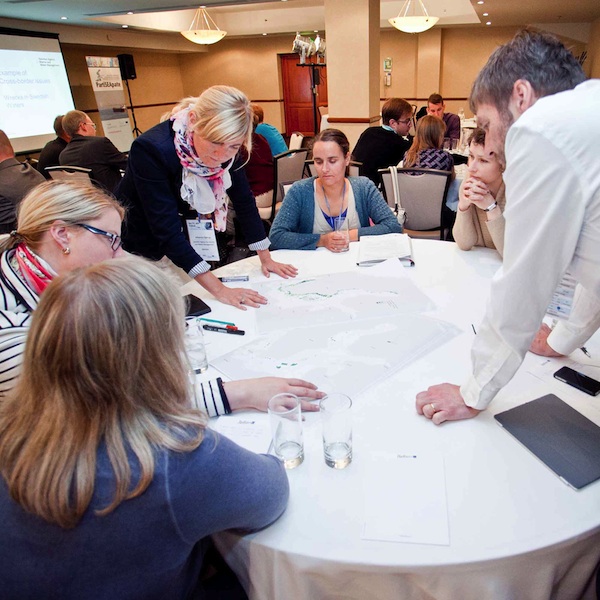Open standards

MSP implies the need to structure complex decision-making and project processes and to connect them with management objectives, implementation strategies and a logically and scientifically sound evaluation framework. The open standards approach assists both planning and process management.
The Open Standards for the Practice of Conservation (here OS) offer a systematic approach to planning and implementing processes, coupled with practical project management tools, a participatory process thinking, and a user- and coach community continuously training each other and developing both approach and tools further.
The OS approach implies an adaptive management view and uses a logic of systematic consecutive steps for analyzing, weighing and choosing in a learning cycle from analyzing to planning, implementing, and evaluating. For each step, it includes the facilitation of a systematic discussion process of interested parts in order to elaborate and implement the plans. The potential outcomes are broadly anchored and logically coherent objectives, strategies, measures, and steps of implementation including an evaluation plan. The approach is linked to a community of practice including coaches in Sweden and all over Europe who meet regularly for training and exchange on the method and its further development. To facilitate logical analysis and practical management, the OS-community has developed a management-software (MIRADI) as well as additional tools.
The OS approach has, as the name says, originally been developed as open standards to improve the practice of conservation management, as protected areas rarely reached their objectives. It has, however, lately also been tested in marine and coastal planning and management, including a broadening of scope to include human use- and social welfare aspects (e.g. in the framework of the coastal collaboration plan project by the Swedish EPA, and internationally in the Sea meets land project. Among its strengths are the management standards and guidelines, a way of visualising, structuring and connecting knowledge and procedures as well as facilitated stakeholder participation and the potential to anchor and mirror our experiences with others through the community of practice. The BALTSPACE team tested the OS approach in its capacity to address the four integration challenges and in its potentials to be developed further to suit the needs of MSP.






